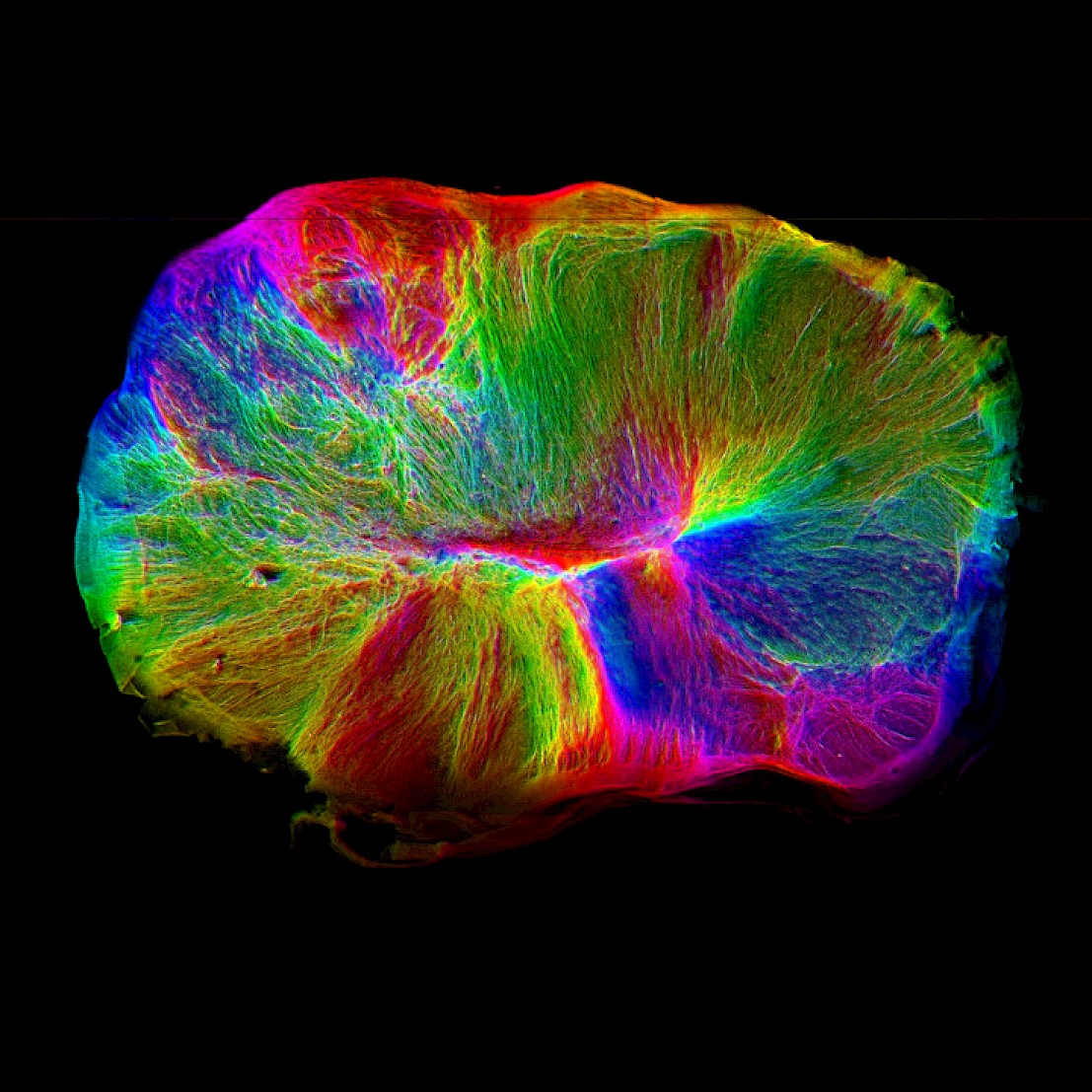Using in vitro models to study human brain evolution and disease.

You can book for in-person attendance at Bookwhen, where you will also find the link for Zoom viewing.
The human brain is amazingly complex, and it’s this complexity that enables our remarkable cognitive power but also makes us susceptible to a range of neurological and mental health conditions. How this complexity arises specifically in humans is one of the most important questions in biology. Because it is a question that can’t be answered in standard animal models, we need a human model. We are exploring this by using stem cell derived models called organoids, small tissues that self-organise and build themselves in a petri dish. By making organoids that mimic the early stages of brain development, we can compare these tissues made from human cells with those made from our closest living relatives, the other great apes, to discover what sets us apart. We have discovered that the cells that produce neurons develop more slowly in human, and that this delay enables them to expand more before making neurons, and thus enables greater neuron number production in the end, hence a larger more complex brain. We are now exploring how this happens, and what goes wrong in disorders like autism and schizophrenia. By using a human model, we are finally revealing the key processes that set us apart as a species.
Dr. Madeline Lancaster, MRC Laboratory of Molecular Biology

Dr Madeline Lancaster is a Group Leader in the Cell Biology Division of the Medical Research Council Laboratory of Molecular Biology (LMB), part of the Cambridge Biomedical Campus in Cambridge, UK. Madeline joined the LMB in 2015, after completing a postdoctoral fellowship at the Institute of Molecular Biotechnology of the Austrian Academy of Sciences (IMBA) in Vienna, where she developed brain organoids.
Research in the Lancaster lab focuses on human brain development using stem cells to generate brain organoids that allow modelling of human brain development in vitro. The laboratory studies the most fundamental differences between human brain development and that of other mammalian species. The lab also studies cellular mechanisms underlying neurodevelopmental disorders such as autism and intellectual disability.
Madeline was awarded the 3Rs Prize by the National Centre for Replacement, Refinement and Reduction of Animals in Research (NC3Rs) in 2015 for her development of brain organoids, and was chosen as an EMBO Young Investigator in 2019. She was awarded the International Society for Stem Cell Research (ISSCR) Dr Susan Lim Award for Outstanding Young Investigator and a Vallee Scholarship in 2021. Madeline was honoured as the Laureate for Life Sciences in the Blavatnik Award for Young Scientists in the UK and was elected an EMBO member in 2022.
Attending lectures
The lecture will be preceded by a short presentation from a CSAR PhD Award Winner
Abrahamic Relations: Past and Present
Mohammed I. Ahmed, Lead Consultant at the Good Faith Partnership; PhD Scholar at the Faculty of Asian and Middle Eastern Studies; Associate Fellow at the DCDC, UK MOD.